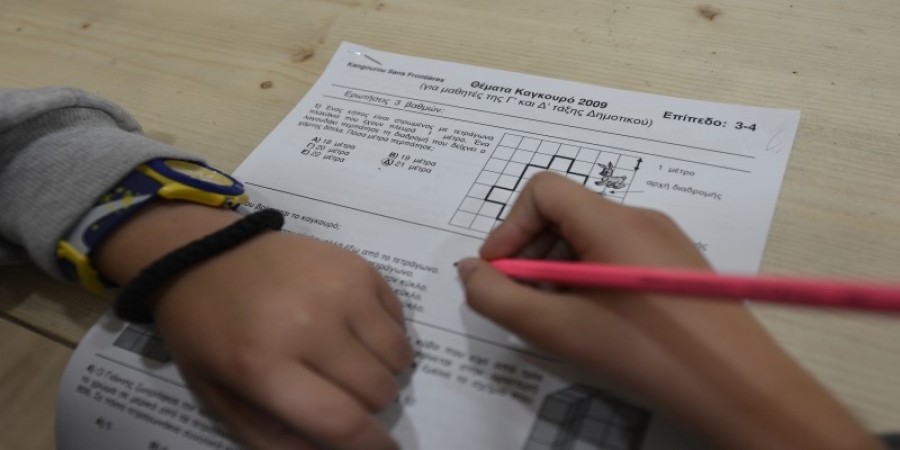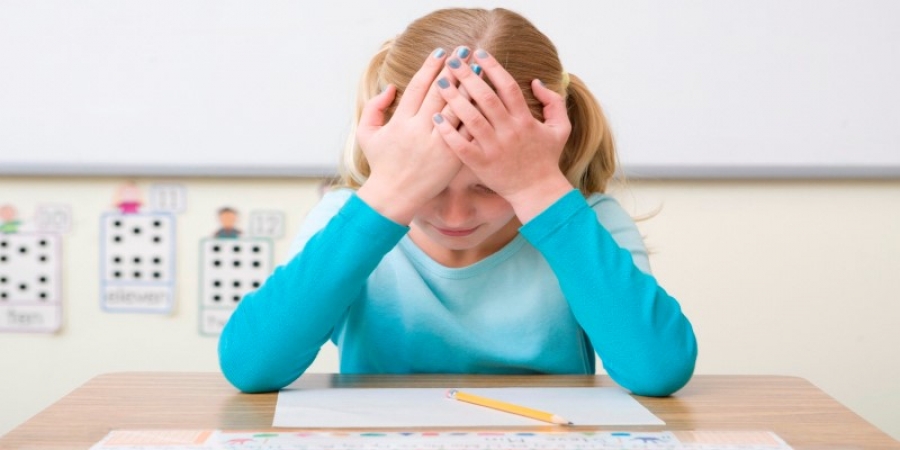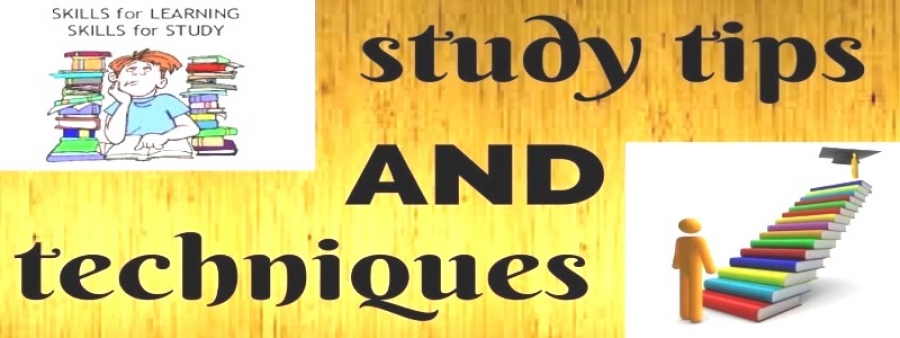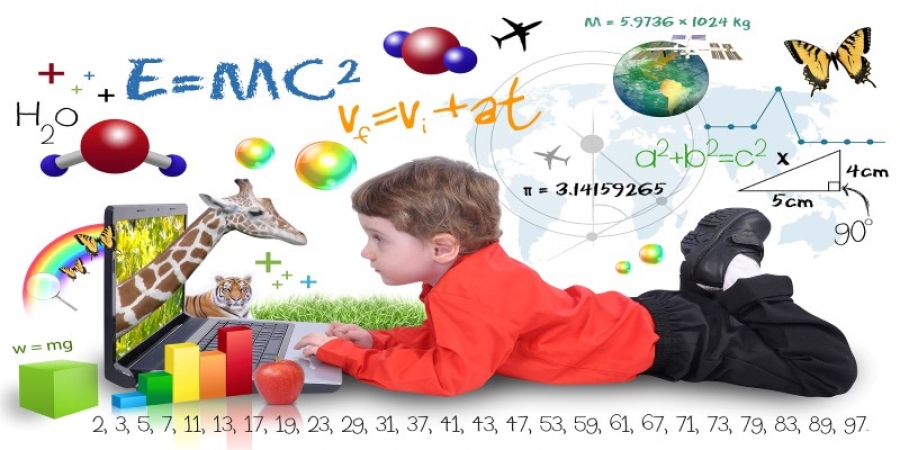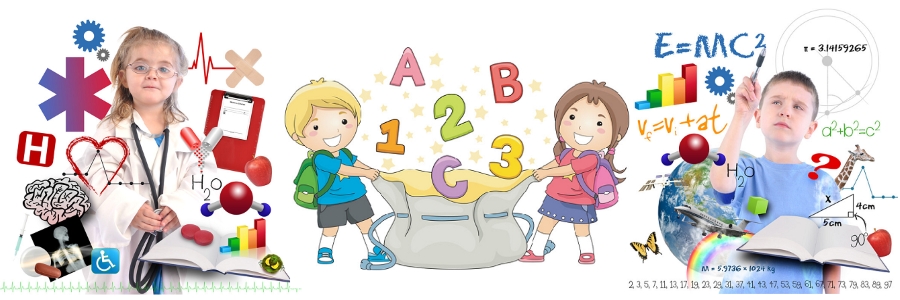Our centre, among others, encourages the children (mainly, in primary grades) to participate individually or collaboratively in local, regional or pan-hellenic student competitions; thus, they would learn too early to experience new challenges, to realize their capabilities-inclinations as well as to create realistic expectations & motivation for learning.
This effort began with our encouragement and coaching of a few students to participate in the international mathematics competition "Kangaroo". Our ultimate goal was to show them that maths could keep away from the sterile daily school exercises and change into a delightful spiritual game. However, going forward, we aim to voluntarily engage them to different competitive learning areas, always prioritizing their enjoyment from participation as well as the difficulty or test anxiety management.
Typical student competitions:
- Mathematics Competition ''Kangaroo'' (2nd - 12th grade)
- Mathematics Competition ''Play & Maths - Mikros Euclides'' (5th - 6th grade)
- Physics Competition "Aristotle" (5th - 6th grade)
- Competition ''Lysias'' via the Internet
- Poetry-Short Story Competition
- Spelling Bee Competition
- Argumentation - Debate Competition
|
Anxiety management program |
||
GOALSΤο associate feelings with my way of thinking/behavingTo use emotional resilience skills in difficult casesTo preserve self-control in anxious situationsTo impove social responsibility & behavior |
TARGET GROUPschoolers(6-13 years old) |
DURATION20 hours |
PROGRAM DESCRIPTIONContent: anxiety self-observation, dysfunctional thoughts ditection/reconsideration, skills management, problem solving, transfer of learning skills/strategiesMethodology: self-observation, problem determination, cognitive/behaviorist reconstruction & control strategies for dysfunctional thoughts, relax/breath techniques. |
||
|
Social skills program |
||
GOALSΤο determine & express feelingsTo develop (non) verbal communicationTo enhance self-esteemTo improve interpersonal relations & self-management |
TARGET GROUPschoolers(6-13 years old) |
DURATION12 hours |
PROGRAM DESCRIPTIONContent: feelings awareness/control, empathy, active listening, self-esteem, friendship, cooperation, assertiveness, problem solving, conflict resolutionMethodology: experiential learning, role playing, group discussion. |
||
Study skills program |
||
GOALSTo make a study scheduleTo manage my behavior in classTo memorize & set information dataTo succeed in school exams & testing |
TARGET GROUPschoolers(6-13 years old) |
DURATIONinfusion acrossthe literacy curricula |
PROGRAM DESCRIPTIONContent: good study habits, study space arrangments, time management, self-control, effective behavior in class, disagreement/conflict resolution, memorization strategies, readiness for school exams/tests, stress management, relax techniquesMethodology: implicit instruction, role playing. |
||
|
Scientific/Mathematical literacy curriculum |
||
GOALSTo develop reasoning skills & analytical thinkingTo practice problem solving & decision makingTo observe & explain the natural world through experimentsTo develop scientific thinking skills |
TARGET GROUPschoolers(6-13 years old) |
DURATION1 hour per week(alternately) |
CURRICULUM DESCRIPTIONContent: heuristic problem solving strategies, degree of decision/solution correctness, experimentsMethodology: differentiated instruction, fading scaffolding. |
||
|
Reading/Writing literacy curriculum |
||
GOALSTo perceive text genres - multiliteracies
To develop literal, inferential & critical comprehensive reading strategies
To develop writing production strategies
To reinforce reading motivation |
TARGET GROUPschoolers(6-13 years old) |
DURATION1 hour per week |
CURRICULUM DESCRIPTIONContent: creative writing, text macro structure, vocabulary, theme/main idea, abstract, paraphrase, paragraph structure, text cohesion/coherence, meta-comprehension (metacognition), ideas production/planning/writing, reading engagementMethodology: differentiated instruction. |
||
|
|
||
PROGRAMS1. Values Education2. Philosophy for Young Children3. Creative Thinking4. Visual-Kinesthetic Perception5. Concentration-Attention6. Visual/Auditory/Functional Memory7. Oral Expression8. Phonetics/Phonological Awareness9. Ancient Greek |
GOALS- to develop emotional & social intelligence- to develop abstract thinking, cooperation & argumentation- to bring out fantasy & critical thinking- to enhance fine motor skills- to reinforce attention & preserve concentration- to easily remember images, sounds, words & use mnemonics- to develop narrative/descriptive discourse & vocabulary- to be aware of linguistic sounds & pronounce sounds of words correctly- to enrich vocabulary, etymology, words families, rhythm, aesthetics |
TARGET GROUPpreschoolers(3-6 years old) |
|
The above programs does not form independent intervention curricula with distinct teaching time, but they are appropriately infused and incorporated in the main curricula for pre-school children according to their needs. |
||
|
Scientific literacy curriculum |
||
GOALSΤο search the nature world through experiment and scientific proceduresTo reinforce critical & creative thinking |
TARGET GROUPpreschoolers(3-6 years old) |
DURATION1 hour per week |
CURRICULUM DESCRIPTIONConceptual base: physics, chemistry and biology experiments through self-regulating and cooperative procedures, constructivismContent: natural phenomena observation, fading scaffolding, self-questioning |
||
|
Body expression curriculum |
||
GOALSΤο search my body, to use & control my movements naturallyTo use my body vividlyTo find out myself through the relation "body-soul-expression" |
TARGET GROUPpreschoolers(3-6 years old) |
DURATION1 hour per week |
CURRICULUM DESCRIPTIONConceptual base: physicality movement, pedagogial kinesiology (Dennison), physical education, creative thinkingContent: experiential search for physical features in space, movement/body awareness, improvisation, pantomime, dance drama |
||
|
Cognitive Curriculum |
||
GOALSTo enhance the development of basic cogntive functionsTo develop task-intrinsic motivation & representational thoughtTo enhance readiness for school learning |
TARGET GROUPpreschoolers(3-5 years old) |
DURATION2 hours per week |
CURRICULUM DESCRIPTIONStructure: 8 unitsConceptual base: cognitive-evolutionary theory (Piaget), socio-cultural theory (Vygotsky), instrumental enrichment (Feuerstein).Content: self-regulation, empathy, comparisons, classification, number concept, patterns, visual/auditory identification, transformation, (a)symmetry |
||




